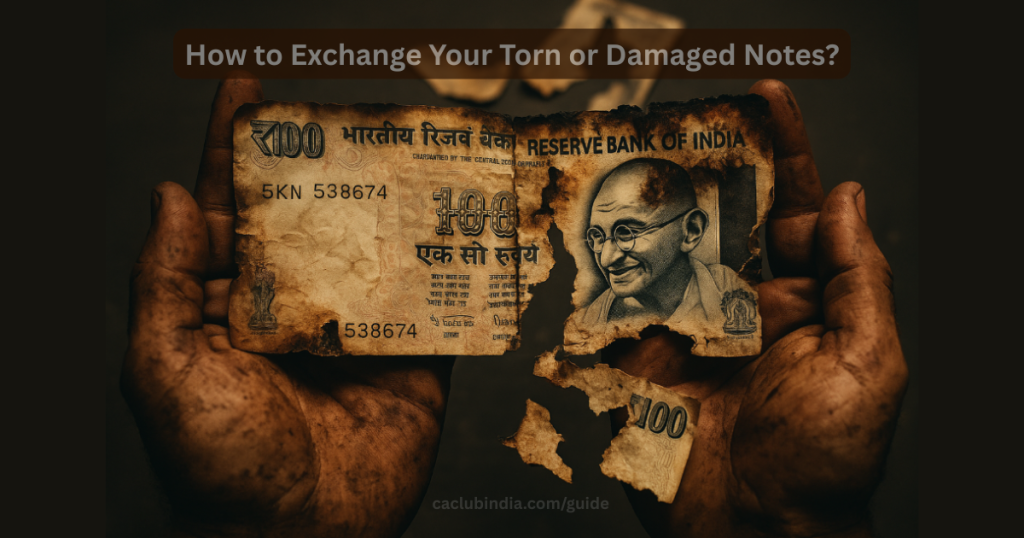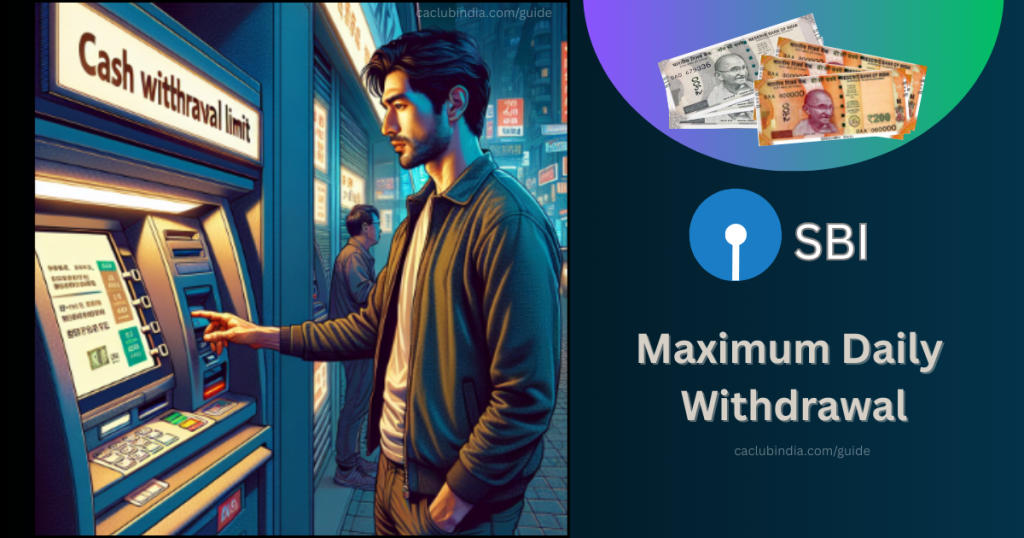
Introduction
Almost of all of us have come across a torn, dirty or even slightly burn currency note – stuffed in a wallet, hidden in an old drawer, or handed over by someone in rush. Many people think such notes are useless or not accepted anywhere. Some even throw them away, not knowing that the Reserve Bank of India (RBI) actually allows these notes to be exchanged at banks under certain rules.
In India, damaged notes are a common sight, especially in local markets and rural areas. But the good news is, you don’t have to worry. If the note is still identifiable and not completely destroyed, there’s a good chance you can get it exchanged easily.
This article will guide you through simple hacks and useful tips to exchange soiled, torn, or partially burnt notes without confusion or hassle.
Types of Damaged Currency Notes
The RBI has clearly defined categories for damaged currency, and each type has different rules for exchange:
Soiled Notes
These are notes that are dirty, crumpled, or have become soft and faded due to frequent use. They are not torn or missing any part – just worn out. These are the easiest to exchange at any bank.
Mutilated Notes
These are torn notes or ones with pieces missing. If part of the note is missing but the remaining portion is enough to prove its genuine, you can usually get a replacement, depending on how much of the note is left.
Burnt or Charred Notes
Notes that are partially burnt, stuck together due to fire, or blackened from heat. If the note is not completely destroyed and at least some part is readable, RBI offices may still accept it.
Knowing which type your note falls under helps to understand how and where to get it exchanged easily.
Can These Notes Be Exchanged?
Yes, most damaged currency notes can be exchanged – but it depends on the type and condition of the note.
- Soiled Notes – These are accepted at any bank branch, no questions asked, no forms or IDs needed. Just hand them at bank counter and bank will replace them.
- Mutilated Notes – These can also be exchanged, but the refund amount depends on how much of the note is left. If more than half of the note is clearly visible and identifiable (especially the note number and watermark area), you’ll likely get the full value. If less than half remains, the bank may reject it.
- Burnt Notes – Partially burnt notes are trickier. You can’t exchange them at regular bank branches. You’ll need to visit an RBI Issue Office, where experts will check the condition. If enough of the note is recoverable and genuine, you’ll get the value based on what’s left.
- Notes that cannot be exchanged – If the note is completely destroyed, stuck in ashes, or deliberately defaced (like with abusive writing or cut into pieces), it cannot be accepted.
So yes, you can exchange most damaged notes – if you follow the right steps and know where to go.
Where and How to Exchange Damaged Notes?
Exchanging Damaged Notes is simpler than the most people think – you just need to know the right place.
- For Soiled and Minor Torn Notes–Walk into any bank branch – public or private. You don’t need to have account there. Just go to the cash counter, hand over the note, and ask for the exchange. Most banks are required by the RBI to accepts such notes under the Clean Note Policy.
- For Mutilated or Badly Torn Notes –Most banks will accept these too, but if they refuse, you can go to an RBI Issue Office in your city. These Offices have trained staff who assess the note’s condition and decide if you can get a full or partial refund.
- For Burnt or Stuck Notes –These must be taken directly to an RBI Issue Office. Don’t try to peel or separate stuck notes yourself – Just carry them in a safe envelope or plastic cover and let the RBI handle it.
- No ID, No Form Needed – In most cases, you don’t need to fill any form or show ID. The process is meant to be simple and quick – so don’t be afraid to ask at your bank.
Simple Hacks to Make the Exchange Process Easier
- Don’t Tape or Staple Torn Notes – It’s tempting to stick torn pieces together, but banks and RBI prefer untouched notes. Let them examine the damage as it is.
- Carry Similar Notes Together – If you have many soiled or torn notes, group them neatly by type. It helps the staff process them faster and avoid confusion.
- Use a Clear Pouch for Burnt Notes – For burnt or delicate notes, keep them in a transparent plastic cover or envelope. Don’t fold or press them. This protects them during travel and helps RBI officers examine them safely.
- Go During Non-Rush Hours –Try visiting the bank or RBI office during non-peak hours (late morning or early afternoon). It’s easier to get attention and quick service.
- Know Your Rights – Banks are required by the RBI to accept soiled and mutilated notes. If a bank refuses, don’t hesitate to ask for written reason or escalate it to branch manager.
Common Mistakes People Make
- Exchanging At Shops: People often try to exchange damaged notes at retail stores or markets, but only banks or RBI offices can process these notes.
- Improperly Handling Notes: Attempting to tape, stable or fold torn notes can make them ineligible for exchange.
- Throwing Away Partially Damaged Notes: Many people assume a torn or burnt note has no value and throw it away, missing the chance to legally exchange it.
RBI Helpline and Digital Complaint Options
If a bank refuses to exchange your notes, you can raise a complaint with the RBI via the RBI website or by calling their helpline (1800 22 23 48).
You can also visit the RBI’s online grievance portal for further assistance.
Conclusion
Damaged currency doesn’t have to be discarded. Knowing the types, where to go, and how to present them can help you get the full value. Stay informed and make sure you use your rights under the RBI’s clean note policy for a smooth exchange process.
FAQs
No, banks usually require at least more than half of the note to be intact and clearly identifiable.
It depends on how much of the note is left; RBI staff decides whether you get full or partial value based on the condition.
No, as per RBI guidelines, all banks must accept soiled notes, even if you don’t have an account there.

